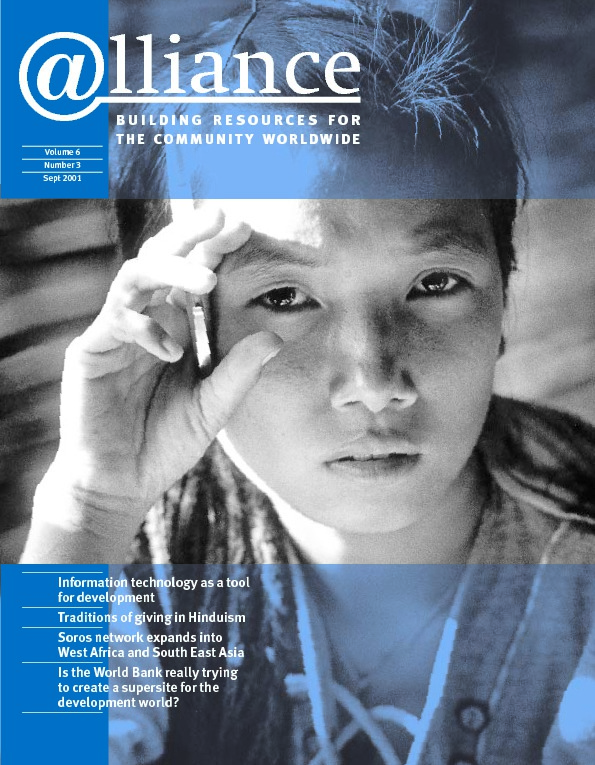ICTs for development
There is a strong social, economic and political case for investing social venture capital in ICTs (information and communication technologies) for poor rural areas. This is the principal thesis of a newly published booklet called A Social Investor’s Guide to ICTs for Development. While acknowledging the likelihood that initially ICTs will disproportionately benefit landowning elites, the booklet argues that ‘in the long term social investment in rural ICT projects could prove to be one of the most effective means of driving change’. The 26 case studies provide a wide range of examples of the sort of thing that is already being done.
A Social Investor’s Guide to ICTs for Development was prepared by the Centre for Knowledge Studies – Bangalore for CAF India. For a copy, please email adsood@vsnl.net or gopinath@cafmail.org
Simputer to enable poor and illiterate to surf Internet
One of the ICT projects featured in CAF India’s ICTs for Development is the Simputer. This hand-held computer, powered by three AAA batteries, will cost only £140 when it comes on the market in India next year. But what is really revolutionary about it is that it eliminates the biggest single barrier to computer use in developing countries – illiteracy. Almost 50 per cent of India’s population is unable to read or write. Engineers at the Indian Institute of Sciences in Bangalore have developed a piece of text-to-speech software that allows the Simputer to translate English text into a variety of Indian languages and read the information aloud to the user.
The shortcoming of the Simputer, as ICTs for Development points out, is that it is designed for use by one person. When it comes to connecting whole communities, fixed public-access desktop PCs of more conventional design may be more useful.
For more information, see the website at http://www.simputer.org
Multilingual browser to help connect India’s non-English-speakers
In the last six years, India has achieved only 5 million Internet penetration, largely among the English-speaking population. A New Delhi-based ‘knowledge technology’ company, 4Cplus, has now developed a multilingual web browser that will enable literate but non-English-speaking Indians to access the Internet and to publish relevant content in
their own language. 4Cplus has already developed the browser in Hindi, and hopes to make it available in 11 other Indian languages. According to IRS (Indian Readership Survey), more than 80 per cent of Indian newspaper readers speak regional languages.
For more information, see the website at http://www.4cplus.com
KnowNet Initiative
The KnowNet Initiative aims to catalyse knowledge networking in developing countries through the use of information and communication technology (ICT).
The KnowNet website at http://www.knownet.org includes a database of over 170 different
ICT-related projects/initiatives and 60 case studies on the use of ICT in the development sector, plus articles and information on upcoming ICT and knowledge networking events.
KnowNet has now created a website on digital governance at http://www.digitalgovernance.org. This contains information on some innovative models of electronic forms of governance which could potentially transform the way citizens interact with government.


Comments (0)